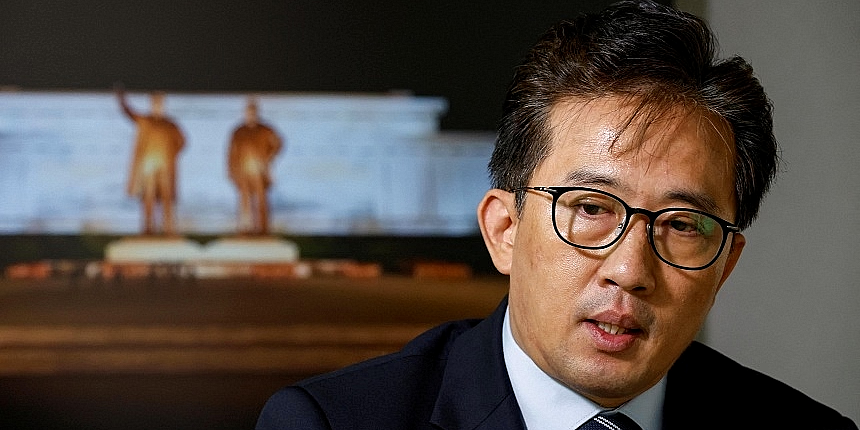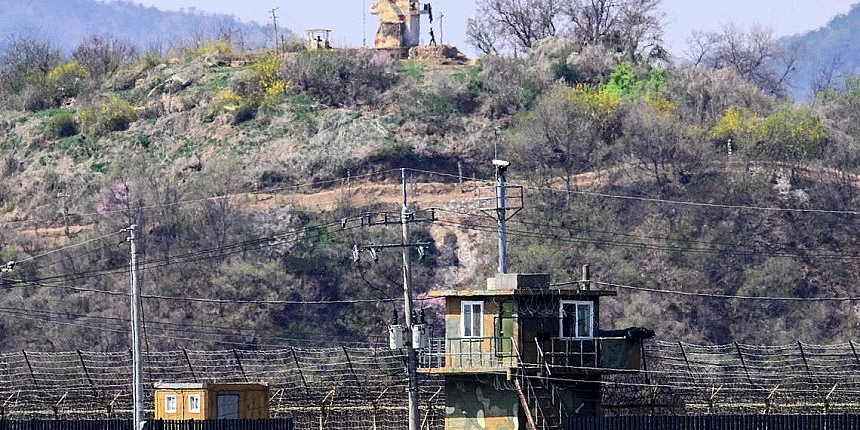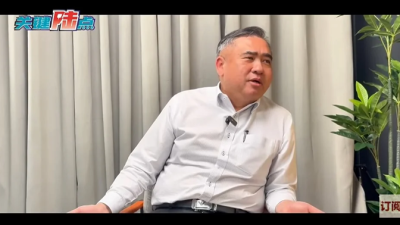
SEOUL: A high number of defections by North Korean elites in 2023, along with two audacious escapes in the past two weeks, are a sign of a major crisis within the country, say analysts.
There were 10 defections to the South by elites such as diplomats and overseas students, based on figures released this week by South Korea’s unification ministry.
While no specific figures for previous elite defections to the South were given, an unnamed official told local media that the rise in such escapes was likely triggered by the post-pandemic re-opening of North Korean borders in August 2023.
“North Korean diplomats, other officials and students based overseas were told to return last year as the pandemic situation entered a new phase,” an official said.
“Many must have found it unacceptable after experiencing what it was like to live in the free world, knowing that the economic situation worsened, and internal controls strengthened in North Korea.”
Before the pandemic, the South received some 1,000 defectors annually. The numbers dwindled to just over 60 in 2021 and 2022, but rose to 196 in 2023 when border controls started to ease.
In the first half of 2024, more than 100 defectors have gone to the South, a number that analysts predict will continue to rise.
As recently as Aug 20, a North Korean soldier successfully crossed into South Korea via the eastern section of the Demilitarised Zone (DMZ). The DMZ demarcates the two Koreas, which are technically still at war.
It was the second defection in 12 days, after a North Korean civilian crossed the western maritime border near Incheon city on foot during low tide on Aug 8.
Such direct North-to-South defections are rare, given that the 248km-long and 4km-wide DMZ is among the most heavily armed borders in the world, with an estimated two million mines, barbed wire fences, tank traps, and tens of thousands of troops on patrol.
These defections are likely to be an indication of how severe conditions are inside North Korea, says Professor Ban Kil-joo of the Ilmin International Relations Institute at Korea University.
He added that it could even be the start of a second Arduous March, the period between 1994 and 1998 when North Koreans defected to the South in droves to escape widespread famine and economic hardship.
“The Kim regime failed to revive North Korea’s economy, and so its citizens are challenged with food security as well as health security,” he told The Straits Times, referring to the government of leader Kim Jong Un.
North Korea is reportedly experiencing significant internal unrest and severe food shortages from flood damage caused by record-breaking heavy rains in late July.
Some 15,000 North Koreans from Sinuiju city and Uiju county, which border China, are said to have been displaced by the flood damage, with Mr Kim offering to have them relocated to the capital Pyongyang for “shelter and education”.
While Pyongyang had thanked Moscow for its offer of assistance without explicit acceptance of the aid, Mr Kim rebuffed Seoul’s offer, saying that “an enemy remains an enemy”.
Under Mr Kim, the prospect of reunification with the South has dimmed tremendously, giving another reason for the defections, said analysts.
In a speech to his Parliament in January, Mr Kim had rejected any possibility of reunification, a stunning move that overturned the decades-old official policy of reconciliation as the ultimate goal.
It upended the state ideology set by his grandfather Kim Il Sung, and then his father Kim Jong Il.
He also ordered a change to the Constitution to brand South Korea as the “principal enemy”, a provocative move widely seen as a defensive measure to prevent any unification by absorption.
Dr Bong Young-shik, from the Institute for North Korean Studies at Yonsei University in Seoul, said this sudden ideological shift could have precipitated the defections of the North Korean elites.
“Those elites, despite difficulties due to their poor material conditions, previously had reasons to stay and remain loyal to the government under the ideology of national unification or socialist revolution. But since Kim Jong Un himself has abandoned that idea, the elites no longer have reason to remain loyal to the leadership,” he told ST.
Pointing to the late Chinese leader Deng Xiaoping, whose reforms created better living conditions for the Chinese people, Dr Bong said Mr Kim had not been able to offer the same.
“For him to keep the elites under control and stay inside North Korea, he has to give them a new reason in place of the socialist revolution and national unification, but he has nothing.”
In November 2023, Mr Ri Il-gyu, a former political counsellor at the North Korean embassy in Cuba, defected to South Korea, the highest level of defection from the North since 2016.
That was the year when Mr Tae Yong-ho, North Korea’s deputy ambassador to the UK at the time, fled to South Korea.
Mr Tae, now 62, was appointed head of the presidential advisory council on unification by South Korean President Yoon Suk-yeol in July.
Mr Ri, waiving his anonymity eight months after his arrival in South Korea with his family, told local media that North Koreans “yearn for reunification even more than South Koreans” as they believe it was the only way for their children to have a better future, but the “regime has brutally extinguished even the slightest hope left among the people”.
He added that the 2019 public execution of former vice-foreign minister Han Song Ryol on spying charges, and the purging of former foreign minister Ri Yong Ho and his family to a political prison camp for corruption the same year, had left many of his foreign ministry colleagues badly shaken.
“After arriving in South Korea, I realised that the great risk of defection was completely worth it. I feel a deep sense of sorrow and miss my colleagues. North Korea has no future. I hope they find the courage to leave that land of darkness and step into the light,” Mr Ri told Chosun Ilbo newspaper.
Under such brutality, along with the economic crisis and ideological unrest, there will be more defections whether by the elites or ordinary North Koreans despite the growing hazards in escaping, said Dr Cho Han-bum, senior research fellow at the Korea Institute for National Unification.
With the usual defection routes through China and Russia now harder because of tighter controls, he thinks there could be more attempts of cross-DMZ escapes, once the riskiest route.
“The North Korean military lacks advanced surveillance equipment and morale is low, with 30 per cent of the North Korean military suffering from malnutrition,” said Dr Cho.
He noted that despite North Korea’s show of shoring up defences along the border, “how the North Korean military appears on the outside and is on the inside, is very different”.
Since mid-July, the two Koreas have been engaging in a tit-for-tat, with the South blasting anti-Pyongyang broadcasts and K-pop music through loudspeakers along the border, while the North repeatedly floated balloons carrying rubbish into the South.
South Korea’s Unification Minister Kim Yung-ho stopped short of crediting the loudspeaker campaign as the impetus for the recent defections.
But he highlighted that a survey of recent defectors who entered the country between 2016 and 2020 showed that they had accessed South Korean content such as K-dramas in the year before their defection.
“This shows that there is a high level of voluntary desire for foreign media content among the North Korean people, and we will try our best to satisfy such a demand,” he told foreign media on Aug 22.

ADVERTISEMENT
ADVERTISEMENT








































